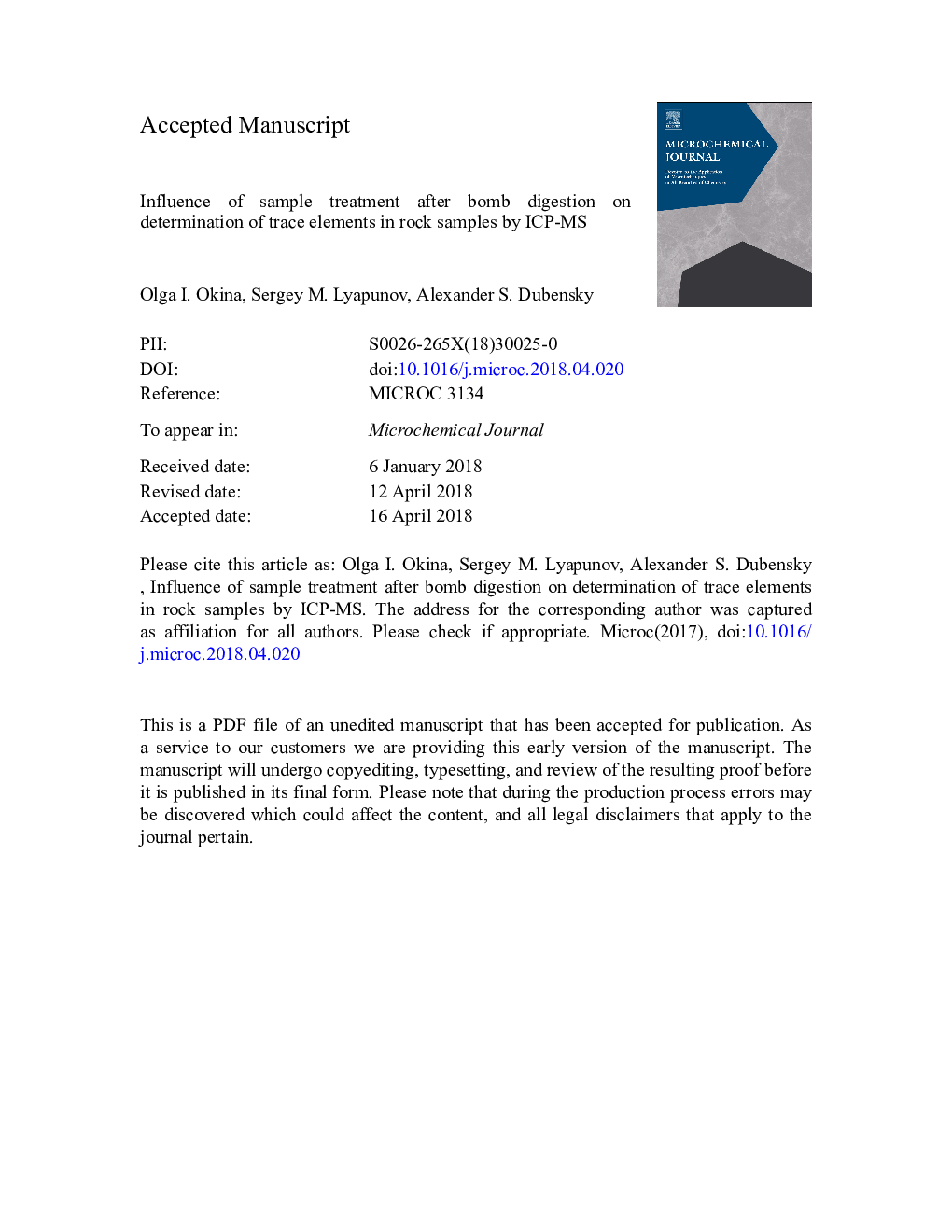| Article ID | Journal | Published Year | Pages | File Type |
|---|---|---|---|---|
| 7640469 | Microchemical Journal | 2018 | 22 Pages |
Abstract
In the present work, the influence of chemical preparation on the determination of Li, Be, Sc, V, Cr, Co, Ni, Cu, Ga, Rb, Sr, Y, Zr, Nb, Mo, Sn, Cs, Ba, rare earth elements, Hf, Ta, W, Tl, Pb, Th and U in rock samples by inductively coupled plasma - mass-spectrometry (ICP-MS) is studied. The conditions of a treatment stage after a rock bomb digestion, leading to significant (>30%) underestimation in Ta, Nb, Mo, Sn and W determination, are refined. The erroneously low results are most likely due to hydrolysis of the compounds of these elements during evaporation of an excess amount of hydrofluoric acid. It is found that the degree of underestimation depends on the total concentration of the residual fluoride ion in the final rock solution for an ICP-MS measurement. The significant losses in Ta and Nb in the nephelinite NKT-1 take place when the residual fluoride concentration becomes <80 and 70â¯Î¼gâ¯mlâ1, respectively, but it is different for other types of rocks. The fluoride concentration is related to the kinds of acids that are used for the rock treatment after a rock bomb digestion, as well as the degree of solution evaporation and the bulk rock composition. A correlation between the residual fluoride ion total concentration in the prepared solution and the total content of aluminium, Râ¯=â¯0,887, pâ¯<â¯0,001, and of calcium, Râ¯=â¯â0.699, p 0,011, in the analysed rock samples is found. The optimized conditions of an acid treatment of rock samples after a bomb digestion to avoid hydrolysis and to obtain the correct results for determination of studied trace elements are described.
Keywords
Related Topics
Physical Sciences and Engineering
Chemistry
Analytical Chemistry
Authors
Olga I. Okina, Sergey M. Lyapunov, Alexander S. Dubensky,
